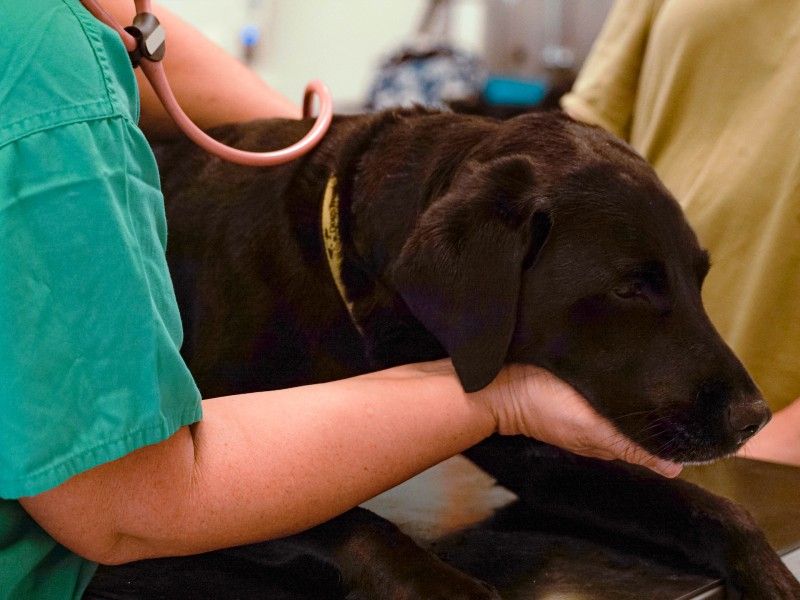As a devoted dog parent, one of the most important responsibilities you have is ensuring your furry friend stays healthy and happy. But since dogs can�t tell us when something�s wrong, we need to rely on subtle (and sometimes not-so-subtle) signs to understand how they�re feeling. Recognizing early warning signs of illness can mean the difference between a minor health issue and a serious medical condition.
This guide will help you identify when your dog might not be feeling well and when it�s time to seek veterinary care.
1. Behavioral Changes
Dogs are creatures of habit, so when their behavior shifts dramatically, it’s often a sign that something isn�t right. If your normally playful pup suddenly seems withdrawn or disinterested in their favorite activities, take note.
Signs to Watch For:
- Lethargy: If your dog seems unusually tired, sleeps more than usual, or is reluctant to move, it could indicate anything from mild discomfort to a more serious illness.
- Increased Irritability or Aggression: A normally friendly dog that suddenly growls, snaps, or avoids contact may be experiencing pain or discomfort.
- Clinginess or Hiding: Some dogs become extra needy when they�re not feeling well, while others seek solitude. A dog that usually loves attention but is suddenly hiding under furniture might be signaling distress.
2. Changes in Eating or Drinking Habits
A healthy dog has a fairly predictable appetite and drinking routine. Sudden changes in these habits can point to underlying health issues.
What to Monitor:
- Loss of Appetite or Refusal to Eat: While skipping a meal occasionally isn�t always a big concern, prolonged loss of appetite (especially if paired with weight loss) is a red flag. Dental pain, gastrointestinal issues, or organ dysfunction could be to blame.
- Excessive Thirst or Frequent Urination: Increased water intake might indicate diabetes, kidney disease, or a urinary tract infection. If you�re refilling the water bowl far more often than usual, take note.
- Vomiting or Nausea: Occasional vomiting isn�t uncommon, but if your dog is repeatedly vomiting, gagging, or drooling excessively, they could have an upset stomach, an obstruction, or a more serious illness.

3. Physical Symptoms: Signs You Shouldn’t Ignore
Dogs may not verbalize pain, but their bodies often show clear signs when something is wrong. Physical symptoms should always be taken seriously, especially if they persist for more than a day or two.
Key Symptoms to Look For:
- Limping or Difficulty Moving: Joint pain, arthritis, injuries, or neurological conditions can cause mobility issues. If your dog suddenly hesitates to jump, climb stairs, or walk, it�s time to investigate.
- Labored Breathing: Heavy panting, wheezing, persistent coughing, or difficulty breathing can indicate heart problems, respiratory infections, or allergies.
- Digestive Issues: Chronic diarrhea, constipation, or unusual stool (bloody, black, or greasy-looking) can signal digestive disorders, infections, or dietary intolerances.
- Excessive Scratching or Skin Irritations: Red, inflamed skin, hair loss, or constant licking of a specific area can indicate allergies, parasites, or infections.
- Unusual Odors: A bad smell from the mouth, ears, or skin might be a sign of infections, dental disease, or metabolic disorders.
4. Eyes, Ears, and Nose: Small Details That Matter
Your dog�s eyes, ears, and nose can reveal a lot about their overall health. Any changes in appearance or function warrant attention.
Things to Check:
- Eyes: Redness, discharge, cloudiness, or squinting can indicate infections, allergies, or even vision loss.
- Ears: If your dog shakes their head excessively, scratches at their ears, or has a foul-smelling discharge, they might have an ear infection or mites.
- Nose: A healthy nose isn�t necessarily always wet, but extreme dryness, cracking, or excessive nasal discharge (especially if thick or yellowish) can be a sign of respiratory infection or dehydration.

5. Unexplained Weight Changes: A Silent Warning Sign
Sudden weight loss or gain in dogs isn�t normal and should always be taken seriously. Even small fluctuations can be a sign of a larger health issue.
Concerns to Be Aware Of:
- Weight Loss Without Diet Changes: Unexplained weight loss could indicate metabolic disorders, parasites, cancer, or gastrointestinal diseases.
- Rapid Weight Gain: If your dog is gaining weight despite eating the same amount of food, it could be a sign of hypothyroidism or fluid retention due to heart disease.

When to Seek Veterinary Care
If you notice any of the above signs, don�t wait too long to consult a veterinarian. Many illnesses progress quickly, and early intervention can prevent complications. Call your vet if:
- Symptoms persist for more than 24-48 hours.
- Your dog is in visible distress or pain.
- There are severe symptoms like collapse, seizures, extreme vomiting, or difficulty breathing.

Trust Your Gut: You Know Your Dog Best
As a pet owner, you have an intuitive understanding of your dog’s normal behavior. If something feels off, trust your instincts. It�s always better to get a vet�s opinion rather than risk missing something serious.
Our dogs give us unconditional love, and in return, they rely on us to care for them. By staying observant and proactive, you can ensure your furry companion stays happy, healthy, and by your side for years to come.


